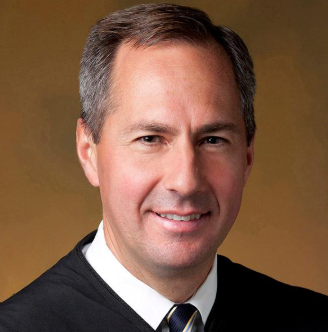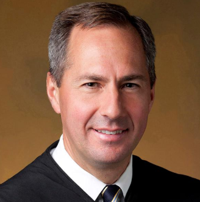
Hardiman
PHILADELPHIA - A Maryland lawn care company has received help in its fight against the Department of Labor after alleging it was never given a fair chance to contest penalties levied while participating in a work visa program.
The U.S. Court of Appeals for the Third Circuit in Philadelphia on July 29 ruled for New Jersey's Sun Valley Orchards, which was hit with nearly $600,000 in penalties by the Labor Dept. and wasn't given the chance to essentially appeal in Article III federal court.
Instead, its defense was handled by administrative law judges within the DOL. This was unfair, Sun Valley argued. The Third Circuit agreed in a decision that has implications for a case currently pending in Philadelphia federal court brought by Maryland company C.S. Lawn.
Sun Valley participated in the H-2A nonimmigrant visa program which allowed it to temporarily hire foreign laborers for seasonal agricultural work. It was alleged to have violated the program's terms, like not offering free housing and transportation.
"It is true that portions of the sprawling H-2A program implicate the President's unique power over foreign affairs," wrote Judge Thomas Hardiman, a President George W. Bush-appointee who previously served as a judge in Pittsburgh's federal court.
"But at best, that shows that some H-2A-related actions may proceed in agency tribunals... But the fact that DOL has some authority to proceed in a non-Article III tribunal does not give it carte blanche to do so far all violations."
C.S. Lawn and lawyers at the Institute for Justice, which also represented Sun Valley Farms, filed a similar suit in 2023 against the Department of Labor. The DOL had assessed nearly $55,000 in penalties for back wages and a violation of a local zoning code.
An apartment for workers was located in an area zoned Suburban Industrial. The Institute for Justice called it "big fines for small violations."
“An entire alphabet soup of federal agencies use in-house agency courts to impose millions of dollars in liability every year, burdening individuals and businesses across the country. That’s totally illegitimate,” IJ senior attorney Rob Johnson said.
“Agency judges have an appropriate constitutional role doing things like processing claims for social security benefits. But if a federal agency is going to fine you tens of thousands of dollars, then you should have a hearing in a real court with a real judge and jury.”
Helpful to the businesses' cause is a 2024 decision by the U.S. Supreme Court in SEC v. Jarkesey that found the SEC's use of its own administrative law judges to handle fraud claims was unconstitutional.
In Sun Valley's case, the Third Circuit found ALJs can be used for proceedings to, for example, remove ineligible workers, which would fall within an immigration exception to preserve the federal government's interest in border control.
But labor code violations concern the feds' interest in domestic wages, the Third Circuit said.
"(T)he labor certification process is designed to vindicate the domestic national policy goal of preserving 'the wages and working conditions of workers in the United States,'" Hardiman wrote.
"Rules about worker hours, housing, cooking and transportation regard employment law, not 'Congress' plenary authority to control immigration.'"


